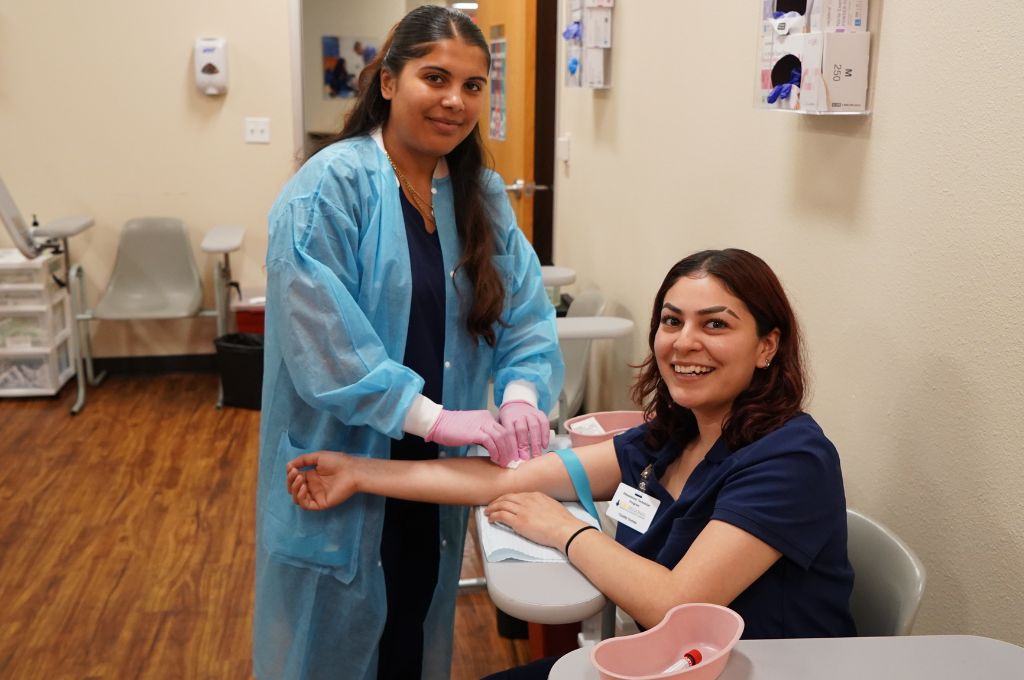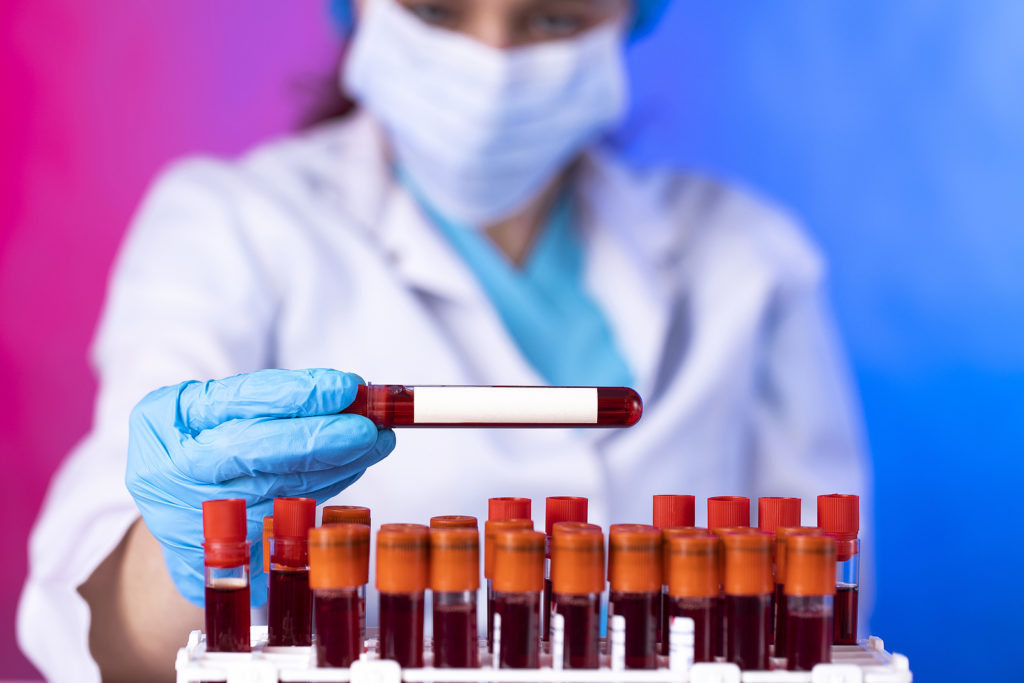Phlebotomy Training Course: Licensing Requirements Explained
Phlebotomy Training Course: Licensing Requirements Explained
Blog Article
The Path to Qualification: Comprehending the Phlebotomy Training Training Course Journey and Its Relevance
As you consider the course to certification in phlebotomy, it's important to recognize the role you'll play in health care. Your training will certainly cover vital abilities, from blood collection strategies to patient communication. Each component of the program prepares you for the obstacles ahead. However exactly what does the trip entail, and why is accreditation so important for your future occupation? Allow's check out these questions additionally.

The Function of Phlebotomists in Health Care
Phlebotomists play an essential duty in the healthcare system, functioning as the vital link between individuals and crucial analysis screening. You'll execute blood draws, making sure samples are collected accurately and safely. Your proficiency aids in identifying clinical problems, keeping track of health and wellness, and guiding treatment decisions.
In your day-to-day communications, you'll require to establish depend on with people, making them really feel comfortable throughout what could be a stressful experience. You are in charge of identifying and taking care of samples meticulously to avoid contamination or errors, which can impact examination outcomes.
Yet, you'll often work together with medical professionals and nurses, connecting crucial info about clients' conditions. Your duty is basic in maintaining the workflow in health care settings, making certain prompt and precise results. By mastering your skills, you add meaningfully to client treatment, making you an important part of the clinical group. Embracing this responsibility is vital to your success as a phlebotomist.
Review of Phlebotomy Training Programs
When checking out phlebotomy training programs, you'll find numerous types designed to fit various routines and learning styles. Each program assists you create vital abilities like blood collection and client interaction. Recognizing these alternatives is key to choosing the best path for your career.
Types of Educating Programs
Several kinds of training programs are readily available for those aiming to become competent in phlebotomy. You can pick from certification programs, which usually last a few months and focus on important abilities. There are also diploma programs that give a more comprehensive education and learning, often lasting as much as a year. If you're looking for a much deeper understanding, an associate degree in a related area could be the right fit. Online programs use versatility for those balancing job or family members dedications, allowing you to examine at your own rate. Furthermore, some hospitals and clinics use on-the-job training programs, providing practical experience while you find out. Whatever path you choose, each program aims to outfit you with the essential skills for a successful phlebotomy career.

Trick Skills Developed
Mastering phlebotomy calls for a collection of key skills that are developed through comprehensive training programs. You'll find out technical skills like proper vein option, needle insertion, and blood collection strategies. These hands-on practices ensure you can perform procedures safely and effectively. Additionally, communication skills are fundamental; you'll require to connect with patients, clarify procedures, and put them at simplicity. Comprehending makeup and physiology is crucial, also, as it helps you find veins and understand the body's reaction to blood draws. You'll obtain understanding of safety procedures and infection control, ensuring you preserve a clean and sterile atmosphere. Each of these abilities is crucial for your success as a certified phlebotomist, making you an important possession in any medical care setting.
Key Components of a Phlebotomy Course
In a phlebotomy course, you'll concentrate on important topics that prepared for your future profession. You'll engage in hands-on training that enables you to use what you've learned in real-world setups. Both the core curriculum and functional experience are crucial for your success as a phlebotomist.
Core Educational Program Review
While seeking a phlebotomy training course, you'll come across a curriculum designed to furnish you with essential skills and knowledge. Phlebotomy school. This curriculum normally consists of composition and physiology, concentrating on the blood circulation system and understanding blood parts. You'll likewise discover various sorts of blood collection methods, including venipuncture and capillary puncture techniques
Furthermore, infection control and safety and security procedures are vital parts, guaranteeing you know just how to maintain a sterilized atmosphere. You'll study patient interaction, highlighting interaction and compassion, which are essential for easing person stress and anxiety.
Hands-On Training Experience
Getting hands-on experience is a crucial component of your phlebotomy training program. This practical training permits you to use what you have actually found out in a real-world setup, improving your abilities and confidence. Phlebotomy Courses Near Me.
Additionally, you'll obtain the opportunity to connect with people, which is vital for creating your interaction skills. This mix of technical effectiveness and interpersonal skills is critical for your success as a licensed phlebotomist. Ultimately, hands-on training visit site is where concept meets technique, strengthening your understanding and readiness for accreditation.
Certification and Licensing Demands
Before you can start your job in phlebotomy, it is crucial to recognize the certification and licensing demands that vary by state. Most states require phlebotomists to hold a certification from a recognized company, such as the National Phlebotomy Association or the American Culture for Clinical Pathology. These accreditations typically involve passing an examination that tests your knowledge and abilities in the area.
Along with certification, some states have details licensing demands. You may need to complete a certain number of hours in clinical practice, send evidence of training, or go through a history check. It is crucial to investigate your state's policies to ensure you meet all required criteria.
Remaining informed concerning these needs not only assists you safeguard a position yet additionally improves your integrity as a specialist. By meeting these demands, you'll be well on your way to a successful job in phlebotomy.
Hands-On Training and Practical Experience
Hands-on training and useful experience are vital elements of your phlebotomy education and learning, as they enable you to use theoretical expertise in real-world situations. Throughout your training, you'll participate in monitored venipuncture, learn proper techniques, and come to be aware of various blood collection devices. This straight involvement is critical for constructing your self-confidence and sharpening your skills.
You'll function closely with seasoned specialists who can direct you through the nuances of client interaction and example handling. Each practice not only reinforces your understanding yet additionally prepares you for the fast-paced atmosphere of medical care setups.
Furthermore, lots of programs incorporate professional rotations, permitting you to experience diverse settings, from hospitals to outpatient centers. This direct exposure assists you adjust to various difficulties and person demands, ensuring you're well-prepared for your future function. Accept these opportunities, as they're necessary to ending up being a skilled and thoughtful phlebotomist.
Difficulties Dealt With Throughout Training
While obtaining hands-on experience is vital, it's essential to acknowledge the difficulties that can occur throughout your phlebotomy training. Furthermore, mastering the skills required for blood draws takes method; you may struggle with technique at first.
Time monitoring can additionally be an obstacle, as harmonizing theory, sensible sessions, and individual commitments can feel daunting. You may face varying discovering rates among your peers, resulting in sensations of insecurity if you think you're falling behind. Finally, adjusting to the different personalities of instructors can be challenging, as each may have an unique mentor design.
Recognizing these challenges beforehand can prepare you for success and assist you develop resilience throughout your training trip.
Career Opportunities After Certification

As you gain experience, you might also take into consideration focusing on areas like pediatric or senior citizen phlebotomy, accommodating details client needs. Some phlebotomists choose to progress their careers by ending up being lab specialists or pursuing more education and learning in healthcare areas.
Additionally, your qualification can result in functions in training or managing new phlebotomists, permitting you to share your understanding. With the healthcare industry continually expanding, your skills will certainly always remain in need, paving the way for a stable and fulfilling job. Embrace the chances waiting for you!
Frequently Asked Questions
What Is the Typical Duration of a Phlebotomy Educating Program?
Phlebotomy training courses generally last around four to eight weeks. You'll participate in hands-on technique, classroom guideline, and online knowing. Completing this training prepares you for qualification and a fulfilling profession in medical care.
Are Online Phlebotomy Courses Available?
Yes, on-line phlebotomy courses are readily available. They use flexibility and ease, permitting you to study at your very own pace. Just verify the program is approved to satisfy certification needs and obtain useful skills for your occupation.
Just How Much Does Phlebotomy Training Generally Expense?
Phlebotomy training check my blog normally sets you back between $700 and $2,500, relying on the program and location. You ought to take into consideration aspects like training course size, included products, and hands-on experience when choosing the right training for you.
What Prevail Requirements for Phlebotomy Training?
Common prerequisites for phlebotomy training often include a high institution diploma or GED, immunizations, and a history check. Some programs might additionally need fundamental medical care understanding or accreditations, ensuring you're gotten ready for hands-on training.
Can I Function While Finishing My Phlebotomy Training?
Yes, you can function while finishing your phlebotomy training. Numerous pupils balance tasks with their studies, but make specific to handle your time successfully to guarantee you satisfy both work and training dedications efficiently.
Report this page